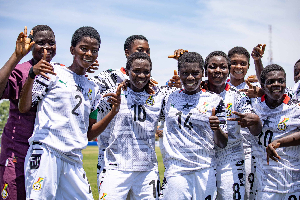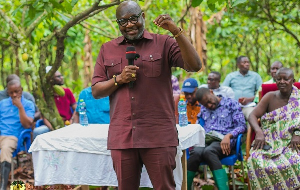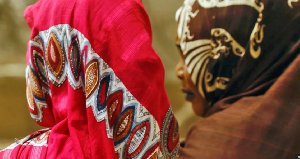When my philosophy lecturer at the Ghana Institute of Journalism (GIJ), Yaw
Dua, finished treating fallacies in our philosophy class, I had come to a
conclusion that the vast majority of politicians were playing fallacious
politics which in the final analysis rid the good people of Ghana from the
real bread and butter issues.
The basic issue was simple; a fallacy meant an error in reasoning. With
fallacies, an argument is put forth only for any arguer within the discourse
to hastily jump to a conclusion by setting aside the substantive issues.
The word “tu quoque” derives its root from a late 17th century Latin term
literally meaning, “you too.” By definition of the Bloomsbury Encarta World
English dictionary, tu quoque is defined as; “used when accused of a crime
to accuse the accuser of the same crime.”
Relating it to the political landscape and what transpires, tu quoque
politicking perspires the average Ghanaian follower of politics and leaves
everybody – including politicians themselves – bereft of any inspiration to
die for our dear homeland, Ghana.
So an issue supposed to be of national importance and geared towards
improving the lot of Ghanaians is reduced to a situation where political
opponents, wait for an argument to be tabled, instead of addressing the
substantive issue, they have found solace and succor in driving home the
daft, moot and nauseating point, “you are no better.”
Funny and most childishly enough, the politicians lose sight of the fact
that, hiding behind an opponent’s fault as basis to repel any advancing
argument is in itself a tacit admission of having committed an error.
Due to the scoring of cheap political points and desperate efforts at
political face-saving, a politician finds it prudent to drag the other party
into the general scheme of events for committing, having committed and most
likely to commit take the same wrong step.
Tu quoque politicking is one that is played right from the top echelons of
political power, right down to the lay man and woman who indulge themselves
in political exchanges on party political grounds, simply put, it cuts
across the whole political strata.
It takes place amongst governments, flag bearers, and aspiring members of
parliament in their electoral campaigns and subsequently on the floor of the
legislature. With respect to it prevalence on the media landscape – print
and electronic – the least said the better.
Admittedly however, tu quoque politicking is sometimes played with so much
wit and trickery that makes it appear to listeners and readers as a kind of
comparative politics when politicians tend to ask in the heat of an argument
whether or not their opponents would have handled issue s any better if
presented with a similar set of circumstances.
Hold on a minute! The difference between diversionary politics and a
comparative one should be made clear to diffuse our minds of any such
attempts at being bamboozled by politicians to accept mediocre answers as
fair and right.
When a party or arguer enumerates a series of achievements or
accomplishments chalked by a party and challenges the other to lay bare his
performance, comparative politics would have been established and rightfully
so.
The only basis on which one may question comparative politics is with
respect to intervening variables such as duration within which the
comparison is being made and a given set of circumstances that may have
precipitated a particular outcome of events.
Then comes fallacious politics, which is simply a ploy to run away from
substantive issues up for discussion by questioning the personality involved
in the argument, by so doing belittling or leaving the main issue to linger
on the side line as though it were no longer important.
What we all can do to steer clear of this and keep politicians up and doing
with respect to addressing the very issues at the core of national
development and growth in all aspects of our national life is, to open up
our ears to political discourse as transpires on the airwaves and in the
newspapers.
We must not let politicians off when they leave issues hanging and go
battling over the extraneous elements in any argument. What is must be
addressed as such without skirting round the issue and letting lose venom
and spewing political desperation on opponents.
*MEDIA’S CONTRIBUTION*
The media which sadly enough is supposed to be representing the views of the
lay man and woman have also resorted to playing along with the concept of
diversionary politics as they have incessantly refused to hold accountable
the political powers for the countless promises they make to the electorate.
This state of affairs have been influenced largely by the growth of the
media and the subsequent segmentation of the media along political line,
where a certain media out fit declares its stands on an issue, then put logs
into their ears and blindfold themselves to the mistakes of the political
group they endorse. They see and hear no evil about the party whose cause
they are for.
This phenomenon, suffice is to reiterate is a cross political occurrence
that has to a large extent compromised the media’s objectivity and gate
keepers role, more scaring is the fact that, the formation of opinions by
most Ghanaians is premised largely on what they hear, read and see on/in the
media.
The fact that things went wrong during a particular period is not, cannot,
and would not in this life or the next be enough a justification for anyone
to assert that, another interested party has no right to question why
something has gone wrong.
For sometime now, this brand of politics has rid Ghanaians of the chance to
get to the crust of issues as these issues are left mid way into
submissions, usually with the accused party running off with a lame argument
that is cast in the shape of an attack on the opponent, Away with fallacious
politics, it begins with you and I so let the clean up start now!!
Credit: Shaban Barani Alpha
Email: newcguide@gmail.com, alfarsenal@yahoo.com
Opinions of Saturday, 15 January 2011
Columnist: Alpha, Shaban Barani


![Miracles Aboagye [L] and John Mahama Miracles Aboagye [L] and John Mahama](https://cdn.ghanaweb.com/imagelib/pics/700/70061516.295.jpg)











